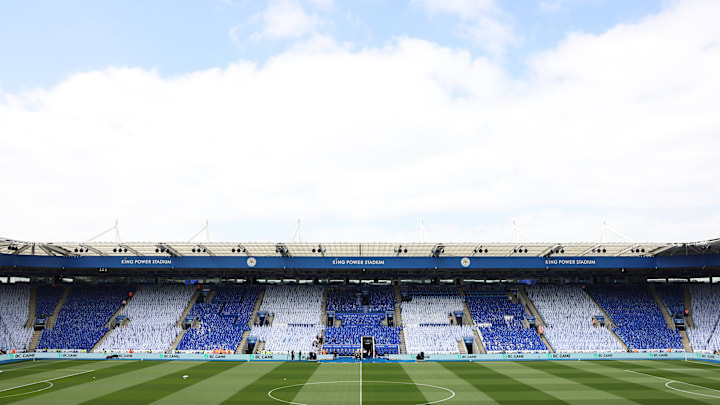As I, and others, have previously documented, Leicester’s hierarchy have undoubtedly made a lot of mistakes in the past and more recently. It is clear these mistakes have contributed to the club’s second relegation from the top-flight in three years. Arguably, though, a one-term stay in the Premier League was always a possibility if not an extremely likely outcome.
Competition in the Premier League
The Premier League is not particularly competitive at least compared to the old First Division. As Michael Walker of the Athletic reminds us, only seven clubs have won the Premier League and only Leicester’s victory in 2016 was a big surprise. Compare that with the period between 1959 and 1972 when 11 different clubs won the title in the space of just 14 seasons.
There is some evidence suggesting that the Premier League has been more competitive this season with the traditional big six, or big seven if we include Saudi-owned Newcastle United, not having things all their own way.
In the 168 matches played between the big six and the other 14 in the 2022/3 season, 117 were won by the former. This amounts to a 70 per cent success rate. Only 24 of these matches (14 per cent) were won by the poorer club. A similar pattern existed in the 2023/4 season. If we factor Newcastle into the equation, the big seven won 125 of the 182 games between them and the other 13, a 69 per cent success rate.
This season, the big seven-win percentage is much less. These teams won only 96 out of 182 games (53 per cent) a significant drop, whilst the percentage of games in which the big seven lost to one of the other 13 rose to 25 (45 games).
We shouldn’t get too carried away by the apparent greater competitiveness at the apex of English football. The reduction in the dominance of the big seven is almost entirely a product of the failing fortunes of Manchester United and Spurs who both finished, remarkably, just above the relegation zone. Meanwhile, the other five big clubs finished, as is traditional, at the top end of the table. Moreover, all of the big seven will invest in new players over the summer, no doubt poaching the best players from the other 13 in the process.
The travails of the promoted clubs
The greater competitiveness of the Premier League in general doesn’t include the promoted teams. It has always been a struggle for promoted teams to find their feet in the top-flight. In most seasons, at least one newcomer has been immediately relegated. In nearly half of the 13 times the Foxes have been promoted to join English football’s elite, their stay has been limited to one term. But at least one, and sometimes two, of the promoted teams survived, some for many seasons.
Although the Premier League has been more competitive in general this season, there is glaring evidence that the financial gap between the newly promoted sides and the other clubs in the top-flight has widened, and it is not at all surprising that this is reflected in performances on the pitch.
Before the 2022/3 season only once during the Premier League era – 1996/7 – had all three promoted teams gone straight back down. Since then, it has happened in consecutive seasons. And the points gap between the relegated teams and the others has grown to alarming proportions. This season, the points won by Leicester, Ipswich and Southampton were the lowest return of relegated clubs in Premier League history and all three had their fate sealed way before the end of the season.
This financial gap is made more acute by football’s financial rules – PSR – which prevent promoted teams from investing in their playing squads at a level that makes them competitive. It was for this reason that upon promotion in 2024, Leicester were forced to sell their best player, or at least one of their best players. How ridiculous is that? As the Foxes have discovered, too, the football authorities will hit those clubs who break the rules hard. In short, newly promoted teams need help from the footballing authorities.
The fans of Sunderland were, rightly, elated at the success of their team in winning the Championship play-off final. But the cruel reality is that they are almost certainly going to struggle to avoid the drop next season. In this context, too, Leicester’s relegation this year, despite the undoubted mistakes the club has made, was always likely, if not inevitable.
